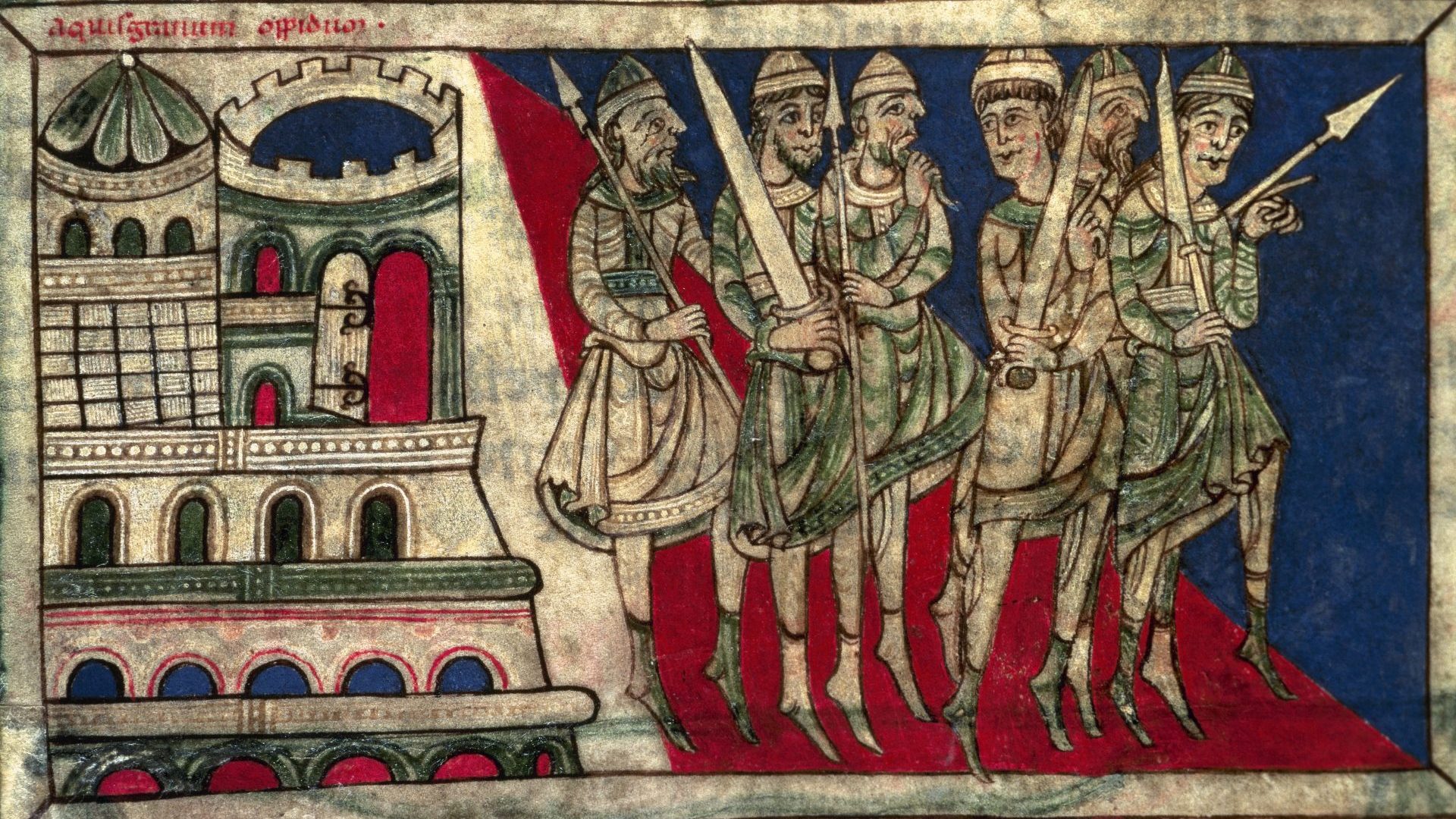The world of antiquarian books is not exactly a glamorous one, the term conjuring for those of us who can’t tell our quartos from our sextodecimos images of establishments that make Emily’s shop in Bagpuss look like a garish temple of rapacious capitalism.
While their language might include terms like “rubbing”, “tailpiece” and “front matter”, there is possibly a good reason why the phrase “as sexy as a rare book dealer” has never exactly swept the nation.
OK, I’m being a little unfair, not least speaking as someone who cannot pass an antiquarian bookshop without going in. There are few sounds that quicken the pulse more than the “ding” of the bell on entering, a brief intrusion of noise from the street, then the accumulated silence of decades returning as the door closes to a gentler tintinnabulation.
The owner looks up briefly over half-moon spectacles, brief nods of acknowledgement are exchanged during which he correctly surmises that I cannot remotely afford anything, and he returns to wrapping a precious tome in brown paper ready for despatch to its new owner.
This timeless and time-stilled world is a recondite one of tweed and corduroy, hand-written receipts, slow-ticking clocks and tea from china cups.
Except when it isn’t.
It takes something spectacular to yank the world of dusty old books from its cosy niche of deckle and vellum into the wider spotlight, and last week saw something spectacular – the busting by Europol of a gang of book thieves responsible for the theft across nine European countries of around 170 valuable volumes worth somewhere around €2.5m, including first editions of works by Nikolai Gogol and Alexander Pushkin.
Nine people, all believed to be Georgian nationals, were arrested in Latvia, France, Estonia and Georgia, with many of the books being recovered at the same time.
The gang specialised in valuable Russian-language editions published in the early 19th century, which appear to have been stolen to order. Some of the volumes have already been sold at hastily arranged auctions in Moscow and St Petersburg, meaning they will almost certainly never be recovered.
The thieves had a well-rehearsed and effective strategy. Posing as academics, they visited the rare books departments of university and national libraries in the Czech Republic, Estonia, Finland, France, Germany, Latvia, Lithuania, Poland and Switzerland over a number of months in 2022 and 2023, asking to examine specific volumes apparently for research purposes.
Librarians recalled how meticulously the visitors would examine the books, measuring their dimensions and photographing them from all angles before returning them with expressions of gratitude.
After that, the thefts played out in two distinct ways. If the robbers deemed the security arrangements to be lax enough they would simply come back later and burgle the premises.
If that proved impractical, the gang members would return weeks or even months after their first visits, ask to examine the volumes again, take them to a table as far from the staff’s view as possible – and exchange the books for forged copies they had brought with them.
“Experts have established that the copies were of outstanding quality,” noted the Europol statement detailing the arrests.
The first incident occurred at the University of Tartu in Estonia in the spring of 2022 when two men requested to view books relevant to their studies in censorship and printing policy in early 19th-century Russia.
After poring over and photographing eight books, they returned a couple of weeks later, requested the same books, exchanged all eight for clever forgeries and left with the originals. So good were the dummy editions the switch was not discovered for several months.
Seventeen Russian books of similar vintage vanished from the library at the University of Vilnius shortly afterwards, a dozen of them replaced with convincing forgeries including a near-priceless 1832 edition of Boris Godunov by Pushkin.
Almost half of the gang’s total haul, around 80 books, were taken from the library at the University of Warsaw. Staff first noticed something was amiss in October, when it became clear that eight 19th-century Russian language books were missing from their rare books collection.
A full audit was undertaken revealing the extent of the thefts to be far, far worse, enough to cost the library’s director her job.
“These books have survived a significant period of partition and war, including two world wars,” lamented the university’s rector Alojzy Nowak. “It is an irreparable loss.”
So convincing were some of the forgeries, which only became clear during the audit thanks to experts detecting differences in the shade of ink used in some of the stamps, that one volume was confirmed as being present in the Warsaw library in a memo sent on exactly the same day the original was being sold at auction in Moscow for €30,500.
Elsewhere, the Bibliothèque nationale de France lost nine volumes, eight by Pushkin and one by Mikhail Lermontov, worth nearly half a million Euros, while similar Russian volumes were also stolen from the University Library of Oriental Languages in Paris and Lyon’s Diderot library.
Latvia’s national library in Riga was relieved of valuable first editions by Gogol and Pushkin, while a library at the University of Geneva lost three books, including one by Pushkin, worth around €160,000.
It is not immediately obvious why the thieves selected the titles they did, although some have detected a symbolism in Vladimir Putin’s regular citation of Mikhail Lermontov, who wrote a significant number of the stolen books, as his favourite writer. Putin has also been a vocal advocate of Pushkin as a hero of Russia; Pushkin was easily the most stolen author among the missing titles.
While it might be a little bit of a stretch to ascribe this as a motive, it is not entirely implausible: Poland, Latvia and Estonia were among the first countries to be targeted, all of which have been accused by Moscow in recent years of discouraging Russian language and culture.
It is certain that this was a highly organised operation. Undertaking a spree of this kind on such a scale is not something criminals would do on a whim. The rare book trade is small, close-knit and populated by experts; attempting to sell high-profile valuable works on spec is practically impossible as the high-end dealers can tell almost immediately if a book they are offered has been stolen.
There is also the Missing Books Register, an online global database maintained by the International League of Antiquarian Booksellers that lists valuable books known to have been stolen. Appear in a shop pulling one of those out of a carrier bag while waggling your eyebrows and the police won’t be far behind.
Many of the highest-profile book heists of recent years have been inside jobs. In 2004, Anders Buris, former head of manuscripts at the Royal Library in Sweden, was tried and convicted for stealing and selling more than 50 rare books from the royal collection. In 2013 Marino Massimo de Caro, former head of the ancient Girolamini Library in Naples, was sentenced to seven years in prison when it emerged that more than 1,500 rare books had been spirited away from the establishment and sold to black-market collectors.
Perhaps the most idiosyncratic of the great European book heists came in 2011 when the 12th-century Codex Calixtinus, effectively an early travel guide for pilgrims on the Camino de Santiago, was stolen from its safe at the cathedral in Santiago de Compostela. The priceless book was missing for a year before being tracked down to the garage of José Manuel Fernández Castiñeiras, an electrician made redundant after working at the cathedral for 25 years.
Described as “a sullen man of few words,” Castiñeiras had been in the process of suing the cathedral for wrongful dismissal when he took advantage of lax security to steal the book, the recovery of which also led to the discovery that Castiñeiras had also been dipping into the cathedral collection boxes over the years to the tune of €2.4m. He got 10 years.
More dramatically, in 2017, 200 rare books destined for a dealers’ fair in the US were stolen in a spectacular raid on a transit warehouse near Heathrow Airport when a Romanian gang cut a hole in the building’s roof and abseiled in, gathered the books into holdalls and spirited them away.
Three-and-a-half years later the books were found stored beneath the floor of a house in rural Romania with only four titles unaccounted for, demonstrating the difficulty thieves face in selling rare books that are not stolen to order.
Hence the volumes targeted in what has become known as Operation Pushkin must have been taken with their ultimate destination already known. The fact some of the books were auctioned off quickly in Russia – despite containing stamps and labels identifying their provenance – combined with the co-opting of expert forgers into the caper, point to this being a highly organised and well-financed operation almost certain to have originated in Russia.
The books recovered during the arrests will be returned to the institutions from which they came; the handful already sold are unlikely to be seen in public again. That constitutes a terrible loss to the world of books but also underlines just how gratifyingly difficult it is to fence valuable works of literature.
The next time you ding the bell of an antiquarian bookseller and the eyes of the proprietor meet yours over the half-moons it may not just be your financial clout they’re assessing. It could be there’s word of a hot first edition of Fly Fishing by JR Hartley knocking about and the Lidl bag for life you’re toting looks just the right dimensions. You’ll barely register the SWAT team before they’re upon you.




